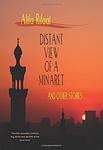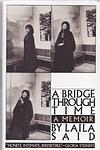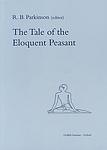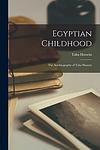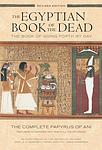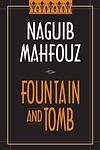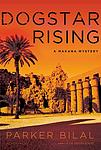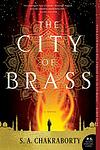The Greatest Egyptian Books of All Time
Click to learn how this list is calculated.
This list represents a comprehensive and trusted collection of the greatest books. Developed through a specialized algorithm, it brings together 286 'best of' book lists to form a definitive guide to the world's most acclaimed books. For those interested in how these books are chosen, additional details can be found on the rankings page.
Genres
Countries
Date Range
Reading Statistics
Click the button below to see how many of these books you've read!
Download
If you're interested in downloading this list as a CSV file for use in a spreadsheet application, you can easily do so by clicking the button below. Please note that to ensure a manageable file size and faster download, the CSV will include details for only the first 500 books.
Download-
1. Woman at Point Zero by Nawal El Saadawi
"Woman at Point Zero" is a powerful novel about a woman named Firdaus who, after a life filled with hardships and abuse, finds herself on death row in an Egyptian prison. The narrative explores her life story, from her childhood of poverty and genital mutilation to her experiences with domestic violence, prostitution, and finally murder. Through her journey, the book offers a profound critique of patriarchal society and the systemic oppression of women.
-
2. Children of Gebelawi by Naguib Mahfouz
"Children of Gebelawi" is a novel that allegorically presents the stories of Moses, Jesus, and Mohammed through the lives of characters in a Cairo neighborhood. The patriarch, Gebelawi, has five children, each representing a different prophet or religious figure, and their struggles mirror the religious and philosophical conflicts of the 20th century. The book explores themes of power, faith, and redemption, and it sparked controversy upon publication due to its portrayal of sacred figures.
-
3. Palace Walk by Naguib Mahfouz
The novel is set in Cairo during World War I and revolves around the life of a conservative Muslim family. The patriarch, a shopkeeper, has two wives and several children, and the story explores the dynamics within the family, particularly the tyrannical father's relationships with his wives and children. As the family navigates through a changing society, they encounter various challenges including political unrest, societal norms, and the struggle between tradition and modernity.
-
4. Midaq Alley by Najib Mahfuz
Set in an old Cairo neighborhood during World War II, the novel delves into the lives of the residents of a bustling alley, offering a tapestry of human experiences and social issues. Through the stories of a diverse cast of characters, including a young beauty dreaming of a better life, a wealthy businessman seeking love, a cafe owner yearning for his past, and others, the narrative explores themes of love, ambition, and the struggle for personal fulfillment. The alley serves as a microcosm of society, reflecting the larger cultural and political changes occurring in Egypt at the time, and the characters' intertwined lives illustrate the complexities of human nature and the universal quest for happiness and meaning.
-
5. Miramar by Naguib Mahfouz
Set in 1960s Egypt, "Miramar" tells the story of an aging revolutionary, a rich man's daughter, a corrupt journalist, and a real estate agent who all come to reside at the Miramar Pension in Alexandria. Their lives intertwine with the life of the young peasant woman who works there as a maid, and through their interactions, the novel explores themes of social and political change in Egypt, the struggle between old and new, and the power of the individual to shape their own destiny.
-
6. The Cairo Trilogy by Naguib Mahfouz
"The Cairo Trilogy" is a captivating tale set in Egypt during the early 20th century, following the lives of the Abd al-Jawad family. The trilogy explores the intricacies of family dynamics, societal changes, and political unrest, as it delves into the personal struggles and triumphs of its characters. With vivid descriptions and rich storytelling, the trilogy offers a deep insight into the complexities of Egyptian society, tradition, and modernization, making it a timeless masterpiece of literature.
-
7. Two Women In One by Nawal El Saadawi
The novel explores the internal and external struggles of a young Egyptian woman who aspires to be a dancer and artist, defying the traditional gender roles and societal expectations imposed upon her. As she pursues her passion, she faces oppression and resistance from a patriarchal society that seeks to control women's bodies and minds. The protagonist's journey is one of self-discovery and rebellion, as she battles to reconcile her desires with the harsh realities of her environment, ultimately striving to forge her own identity and find freedom within a repressive cultural landscape.
-
8. Zayni Barakat by Jamal al- Ghitani
"Zayni Barakat" is a captivating novel set in 19th-century Egypt, following the life of Zayni Barakat, a young man caught in the midst of political and societal turmoil. As he navigates through a world of corruption, power struggles, and forbidden love, Zayni's journey becomes a reflection of the struggles faced by the Egyptian people. Through vivid storytelling and rich historical context, the book explores themes of identity, revolution, and the complex dynamics of a nation on the brink of change.
-
9. Al Mawt `Ala Al Asfalt by `Abd al-Rahman Abnudi
"Al Mawt `Ala Al Asfalt" is a thought-provoking and powerful novel that delves into the complexities of life and death. The story follows a diverse group of characters as they navigate the streets of Cairo, each grappling with their own existential dilemmas. Through vivid and poetic prose, the author explores themes of love, loss, and the search for meaning in a chaotic world. With its rich cultural backdrop and poignant storytelling, this book offers a profound reflection on the human condition.
-
10. Distant View Of A Minaret by Alifa Rifaat
The book is a collection of short stories that delve into the lives of women in contemporary Egyptian society, offering a poignant and often stark portrayal of the challenges they face. Through the lens of various female protagonists, the stories explore themes of sexuality, marriage, fidelity, and the role of women within the constraints of a patriarchal culture. The narratives often highlight the inner lives and suppressed desires of these women, revealing the gap between personal aspirations and societal expectations. The title story epitomizes the collection's essence, presenting a woman's reflection on her unfulfilling marriage and her yearning for spiritual and emotional fulfillment, symbolized by the distant view of a minaret.
-
11. A Bridge Through Time by Laila Abou-Saif
"A Bridge Through Time" is a poignant memoir that chronicles the author's life journey, weaving together the rich tapestry of her Egyptian heritage with her experiences in the Western world. The narrative delves into the complexities of identity, culture, and the sense of belonging as the author navigates the challenges of assimilation and the preservation of her roots. Through a series of reflective anecdotes and personal insights, the book offers a unique perspective on the universal quest for self-discovery and the reconciliation of disparate worlds, ultimately serving as a metaphorical bridge connecting the past with the present.
-
12. The Tale Of The Eloquent Peasant by R. B. Parkinson
"The Tale of the Eloquent Peasant" is an ancient Egyptian story about a peasant, Khun-Anup, who is robbed by a dishonest nobleman, Nemtynakht. When Khun-Anup seeks justice, his eloquent pleas catch the attention of the high steward, who is impressed by his rhetoric and wisdom. The peasant is asked to continue his speeches so that the steward and other officials might learn from him, prolonging the resolution of his case. Eventually, the Pharaoh himself hears of Khun-Anup’s plight and intervenes, ensuring that justice is served, thereby highlighting themes of justice, eloquence, and the moral duties of the powerful.
-
13. The Open Door by Latifa Zayyat
The novel explores the journey of a young Egyptian woman during the 1940s and 1950s, a period of political turmoil and social change in Egypt. As she comes of age, the protagonist grapples with the constraints of traditional societal expectations and her desire for personal and intellectual freedom. Her story intertwines with the broader narrative of her country's struggle against British colonialism and the quest for national identity, reflecting the broader themes of liberation and self-determination. Through her experiences, the book delves into issues of gender, politics, and the quest for meaning in a rapidly changing world.
-
14. Adventures Of A Breath by Hayam Abbas Al-Homi
"Adventures Of A Breath" is a captivating and thought-provoking novel that follows the journey of a young protagonist as they navigate through life's challenges and explore the depths of their own existence. Through vivid storytelling and poetic prose, the author delves into themes of self-discovery, love, loss, and the pursuit of one's dreams. This beautifully crafted narrative invites readers to reflect on the fragility and beauty of human existence, ultimately leaving them with a sense of hope and inspiration.
-
15. The Map Of Love by Ahdaf Soueif
This novel intricately weaves together the lives of two women, separated by a century, who find themselves connected through a shared history and a mysterious collection of letters and journals. Set against the rich backdrop of late 19th and 20th-century Egypt, the story explores themes of love, politics, and the enduring impact of colonialism. As the modern-day protagonist delves into the past, she uncovers a passionate love affair between her ancestor, an Englishwoman, and an Egyptian nationalist. This discovery leads her on a journey of self-discovery and a deeper understanding of her cultural heritage, revealing the complexities of identity, the power of love, and the intricate map of human connections that transcends time and place.
-
16. Palace of Desire by Naguib Mahfouz
"Palace of Desire" is a novel set in Cairo in the 1920s, continuing the saga of the Cairene patriarch Al-Sayyid Ahmad and his family. It explores the dynamics of the family, the father's authoritarian rule, the sons' rebelliousness, and the daughters' submissiveness. The book also delves into the themes of love, lust, power, and the struggle between tradition and modernity in Egyptian society. The narrative is a blend of social realism and psychological insight, offering a vivid portrait of a society in transition.
-
17. Sugar Street by Naguib Mahfouz
"Sugar Street" is the final novel in a trilogy set in Cairo, Egypt, from the 1919 Egyptian Revolution through the end of World War II. It follows the lives of the al-Jawad family, focusing on the younger generation's political activism and romantic entanglements against the backdrop of a changing society. The book explores themes of modernization, colonialism, and the clash between tradition and progress.
-
18. An Egyptian Childhood by Taha Husayn
The book is a poignant autobiographical account that delves into the early years of a visually-impaired boy growing up in a small Egyptian village at the turn of the 20th century. It explores the challenges and societal expectations he faces, as well as the cultural and educational milieu of Egypt during this period. The narrative is a blend of personal growth, the pursuit of knowledge, and the struggle against traditional constraints, providing a window into the author's formative experiences that shaped his journey towards becoming one of the most influential intellectuals of his time.
-
19. Egyptian Book Of The Dead by Unknown
The text in question is an ancient Egyptian funerary text consisting of spells, prayers, and incantations intended to guide the deceased through the afterlife. It contains detailed instructions for the soul's journey past various obstacles, with the ultimate goal of reaching the afterlife and achieving eternal life. The spells are designed to protect the soul from evil forces, ensure the continuation of life after death, and maintain harmony with the gods. This collection of texts highlights the Egyptians' beliefs about the importance of the afterlife and the complex rituals associated with death and burial practices.
-
20. Fountain And Tomb by Najib Mahfuz
"Fountain and Tomb" is a collection of interwoven short stories that paint a vivid portrait of life in a Cairo alley during the early 20th century. Through the eyes of a young narrator, the book delves into the daily lives, secrets, and communal relationships of the residents, offering a tapestry of human experiences that range from the humorous to the tragic. The narrative captures the essence of a changing society, where tradition clashes with modernity, and where characters grapple with issues of morality, love, and the inexorable passage of time. The work is a poignant reflection on the complexities of life within a tight-knit community, encapsulating the universal themes of change, memory, and the enduring human spirit.
-
21. Cleopatra: A Life by Stacy Schiff
"Cleopatra: A Life" by Stacy Schiff is a detailed biography of one of the most famous and enigmatic figures in history, Cleopatra VII of Egypt. The book explores her life from childhood to her reign as queen, her relationships with Julius Caesar and Mark Antony, and her eventual downfall. Schiff uses primary sources and historical records to paint a vivid picture of Cleopatra's world and dispel many of the myths surrounding her life. The book also delves into the political and cultural context of ancient Egypt and Rome, providing a fascinating glimpse into a bygone era.
-
22. Dogstar Rising by Parker Bilal
In this gripping sequel set in the bustling streets of Cairo, the protagonist, a private detective with a troubled past, finds himself embroiled in a complex case during the sweltering summer months. The investigation begins with what seems to be a straightforward task but quickly spirals into a dangerous journey through the city's underbelly, uncovering a web of corruption that reaches into the highest echelons of society. As religious tensions simmer and a mysterious figure from the detective's past reemerges, the case becomes a race against time to prevent a catastrophic event that could shake the city to its core. This novel masterfully blends suspense, richly drawn characters, and the vibrant, chaotic backdrop of Cairo to deliver a compelling tale of crime and redemption.
-
23. The City Of Brass by S. A. Chakraborty
"The City of Brass" is a captivating fantasy novel set in 18th century Cairo, where Nahri, a young con artist with healing abilities, accidentally summons a powerful djinn warrior. As she is thrust into a world of magic and political intrigue, Nahri discovers her true heritage as a descendant of the djinn and becomes embroiled in a dangerous power struggle between two magical factions, the Daeva and the Nahids. With vivid world-building and complex characters, this book explores themes of identity, loyalty, and the consequences of wielding power.
Reading Statistics
Click the button below to see how many of these books you've read!
Download
If you're interested in downloading this list as a CSV file for use in a spreadsheet application, you can easily do so by clicking the button below. Please note that to ensure a manageable file size and faster download, the CSV will include details for only the first 500 books.
Download






